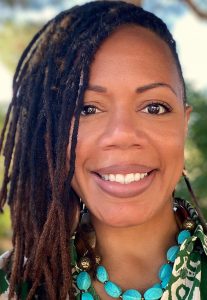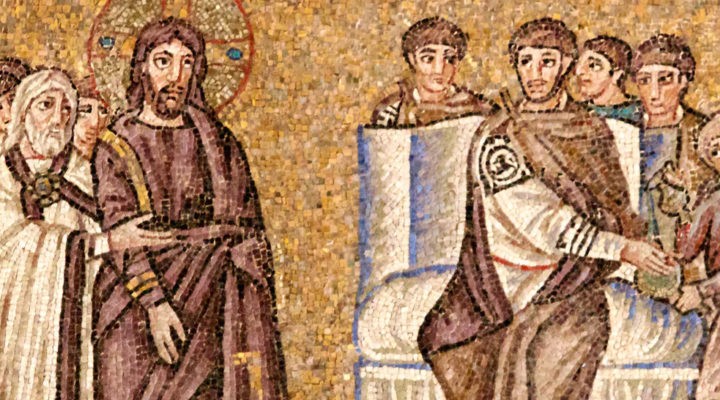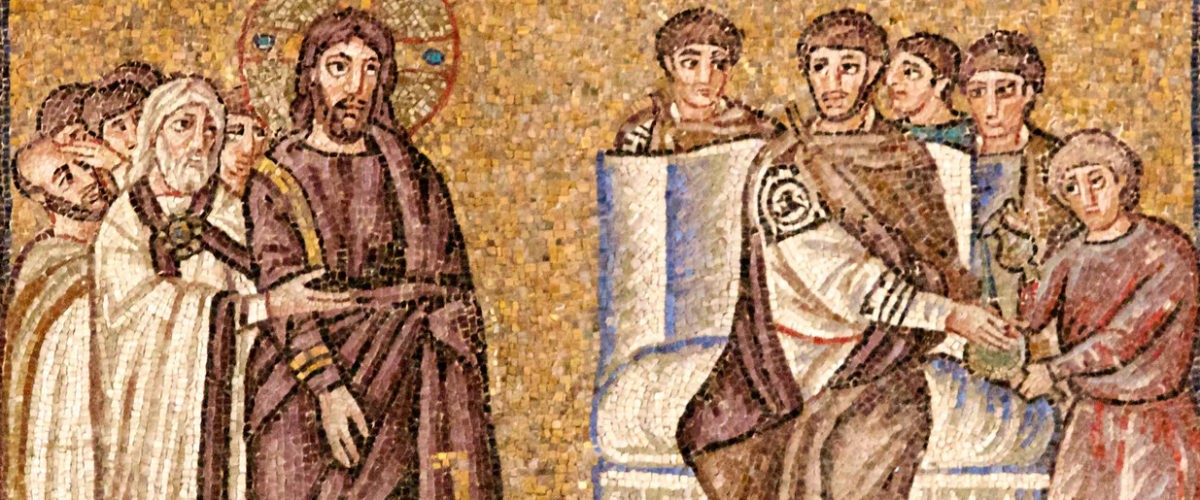With Election Day in two weeks and early voting already under way, it’s impossible to miss how religion continues to be wielded in American politics.
For decades, Christianity has been co-opted to justify a specific slate of policies, narrowing what it means to live out our faith to a predictable party script. Abortion bans, opposition to LGBTQ marriage, restrictions on the teaching of gender identity, even removal of social and emotional learning from schools — these have become litmus tests for what some claim is the “Christian” vote.

Lydia Carlis
What gets lost in this political theater, though, is a deeper, more urgent question for all of us who follow Christ: What Would Jesus Do? Put another way, what kind of faith are we practicing if it denies others their God-given right to choose?
Let me be clear: As a Christian, I care deeply about human life. I agree you can’t be a Christian without believing in the sanctity of life. This doesn’t mean, however, we should support policies that force our beliefs onto others or try to legislate their most personal, private decisions. To be sure, some Christians see legislation as a means to preserve moral order, but the question we should be asking is whether this actually reflects Jesus’ own approach to both government and personal freedom.
When Jesus was on trial before Pilate, he didn’t fight for political power and he didn’t seek to impose his teachings through the Roman government. Instead, Jesus told his followers to live by faith in the world as it is, while never losing sight of the kingdom that was to come.
“What kind of faith are we practicing if it denies others their God-given right to choose?”
“My kingdom is not of this world. If it were, my servants would fight to prevent my arrest by the Jewish leaders. But now my kingdom is from another place,” Jesus says in John 18:36. That may be a hard pill to swallow in today’s polarized political climate, where every issue seems to demand we take up literal and figurative arms in the so-called “culture wars.” But Jesus’ refusal to politicize his message shows us something crucial: Faith is a choice, love requires sacrifice, and coercion has no place in the kingdom of God.
Consider the issue of abortion. It’s easy for Christians to fall into the trap of believing that being “pro-life” means being anti-choice. But forcing someone to carry an unwanted pregnancy to term, for whatever reason, doesn’t create a culture of life; it creates a culture of control. Being pro-choice is not synonymous with being pro-abortion, regardless of what gets said from the pulpit or the debate stage. It means respecting women’s right to make deeply personal, moral decisions in line with their own convictions, not under the thumb of government or religious mandates.
In the Bible, choice is shown to be integral to our relationship with God, from Genesis through Revelation. In Genesis 2:16-17, God gave Adam and Eve the freedom to choose, even when the future of humanity was at stake. They were told not to eat from the tree, but the choice was theirs to make, illustrating that God doesn’t rule his beloved through fear and control. We shouldn’t attempt to rule our country’s citizens that way, either.
And lest we forget, in a nation that doesn’t separate church and state, the people who stand to lose the most are those Jesus spent his ministry defending — the marginalized, the vulnerable, the ones most separated from power. Throughout history, whenever religion and government have mixed, it’s led to oppression, not liberation.
Whether it was the Inquisition or Jim Crow laws cloaked in pseudo-Christian rhetoric, the story is the same. A government that enforces religious doctrine is a government that strips people of their right to follow or reject faith freely. And let’s not pretend it stops with one religion. When faith becomes the law of the land, those who don’t share the dominant belief are left out in the cold. That’s not justice, it’s tyranny.
This false choice — that to be a “good Christian” we must vote for policies that limit others’ choices — is a disservice to God’s word and Jesus’ example. Jesus didn’t command us to build a political empire. He invited people to follow him, but always left the door open for them to accept or reject him.
“Why do we, who claim to be Christ’s followers, turn to government force to achieve what Jesus left to the saving power of God’s grace?”
Matthew 19:21-22 offers one example. When the rich young ruler asked Jesus what he must do to gain eternal life, Jesus laid out the path. When the man walked away, Jesus respected his choice. So why do we, who claim to be Christ’s followers, turn to government force to achieve what Jesus left to the saving power of God’s grace?
For Christians committed to justice, there’s a different path. We can fight for the dignity of all people and reject policies that trample on our individual freedom. We can resist our impulse to impose faith through legislation. That’s not how Jesus worked, and it’s not how we should either.
Paul wrote in Romans 14:5: “One person considers one day more sacred than another; another considers every day alike. Each of them should be fully convinced in their own mind.” This Scripture reflects that even in matters of faith, God calls for personal conviction rather than enforced conformity.
Voting for all citizens’ right to choose isn’t about watering down the gospel or ceding ground in a cultural or spiritual war. It’s about recognizing the heart of the gospel: a God who calls us both to love and to choose, who invites but doesn’t coerce, and who offers us true freedom.
By supporting policies that protect choice, we don’t betray that gospel, we live it more fully. We are called to something much bigger — to love our neighbors and trust that the God we believe in is sovereign enough to work in each of our lives without the heavy hand of the state.
Our faith is not weakened when it lives alongside freedom; it’s given oxygen to thrive.
Lydia Carlis is a native of Little Rock, Ark., who lives in Washington, D.C. She holds a Ph.D. and works in the field of education empowerment for younger children. She also is a visual artist. She is a Public Voices Fellow with The OpEd Project and The National Black Child Development Institute. This piece was made possible through The OpEd Project.


